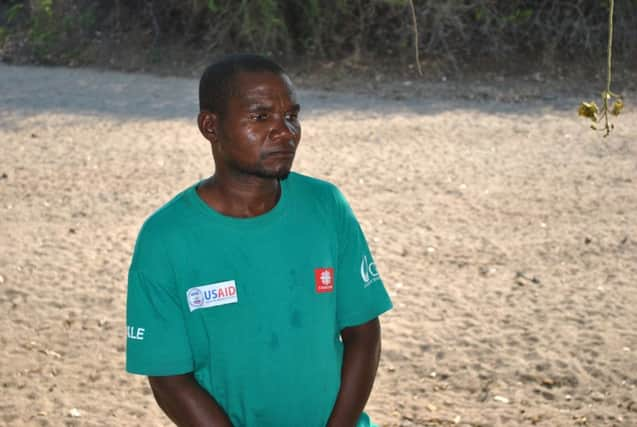Rain gauge is first line of defence for villagers in Fombe


Stephano is the chairman of the 15 person Civil Protection Committee and he explains how the area is prone to disaster thorugh droughts and floods,
“I am very happy with the funding that has been coming in to this community from Christian Aid into a community affected by disaster here,” he said.
Advertisement
Hide AdAdvertisement
Hide Ad“We have difficulty with two issues, floods or a very dry spell - drought. We have received training in the early warning system and disaster preparedness. One of the systems is the rain gauge that we have in the village of Fombe.
“The rain gauge is used to let us know within the community about the level of the water. The rain is measured at 8 o’clock and if the reading is 50mm or more it is a sign that there could be flooding.”
The committee members are also involved in conservation agriculture through a tree planting scheme and villagers participate in the goat scheme where they have to pass two goats on to another beneficiary. The committee have also been involved in training farmers.
Stefano again: “We have been affected by floods from the Mthumba River. Through this project we have been diverting the course of the river which had been previously going through the village. With help through Eagles they have constructed a dyke and its aim is to divert the water from its main course. The total cost of the dyke was £4,000. Cement was mixed with the sand and bags.
Advertisement
Hide AdAdvertisement
Hide Ad“If the rain gauge is reading high then an early warning plan is put in place and people are warned to prepare for floods. Evacuation is carried out and members of the committee are trained in first aid so if people are injured they are able to treat them before they go to hospital.
“The people are told to go upland to schools and we look at our plans every five years. The dyke was first constructed for a length of 60 metres but it has now been extended to 140 metres and the work is ongoing.
“We are very happy and appreciate Christian Aid for the help that we have received through this project. Through Eagles we have been able to implement the projects with transparency and accountability,” added Stefano.